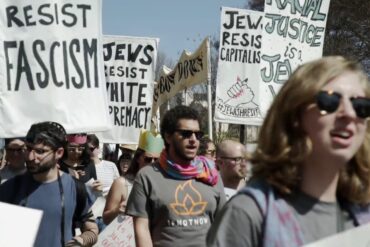In his essay חירותינו (our freedom), Rabbi Avraham Yitzḥak HaKohen Kook explains that the difference between a slave and a free person is not merely a matter of social position. We can find a slave whose spirit is full of freedom (such as our brother Jonathan Pollard) and we find men who are free but possess the spirits of slaves.
A person with the spirit of a slave lives his life through actions and emotions that are rooted not in his own essential spiritual nature but in that which is attractive and good in the eyes of others. He is essentially ruled by others, whether physically or socially.
True freedom, on the other hand, is when the individual (or the nation as a whole) remains faithful to his inner essence regardless of external forces.
For 2,000 years of exile, our people were subjugated to external forces. Now that we have finally regained our political independence, we are no longer physically enslaved. But in order for us to truly be a free people, it is not enough to be liberated from physical slavery. We must also liberate ourselves from mental slavery – from handing over power to foreign diplomats through allowing them to pressure our leadership’s dec isions, which is largely a byproduct of Israel accepting foreign aid.
Israel’s acceptance of foreign aid creates a “puppet state” mentality that ultimately imprisons the judgment and actions of our leaders from being truly loyal to our people’s authentic aspirations.
As a result of accepting foreign aid, our leaders feel pressured to act in ways and make decisions that are good in the eyes of other nations rather than staying loyal to what our people authentically believe to be good and true.
This Pesaḥ, we must aim to liberate ourselves from any power – internal or external – that distances us from our true essence.
On the personal level – by staying loyal to ourselves regardless of social conventions.
On the national level – by liberating ourselves from foreign influences.
May we merit both.
Ḥag Sameaḥ





